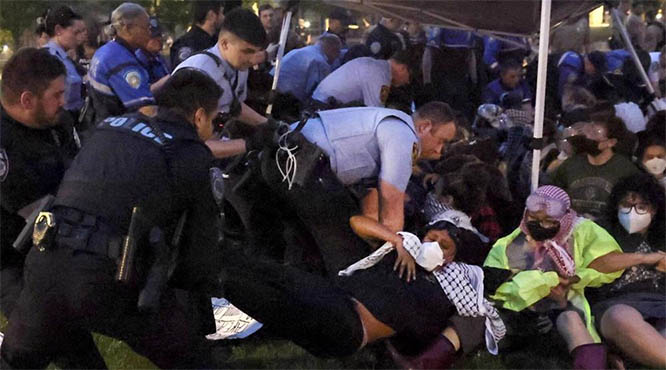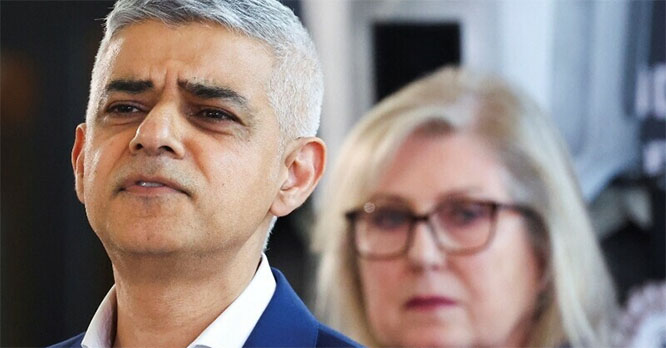United Nations, Sept 14: India, China, Russia and Myanmar are among several countries named in a report by UN chief Antonio Guterres that details an "alarming" level of harsh reprisals and intimidation against those who cooperate with the United Nations on human rights issues.
The ninth annual report of the Secretary-General details the level of retaliation against human rights defenders on a country-by-country basis, including allegations of killing, torture, arbitrary arrests, and public stigmatisation campaigns, which also target victims of rights abuse.
The report documents allegations of reprisals and intimidation in 38 countries, some of which are members of the Human Rights Council.
Prior to officially presenting the Human Rights Council with the report next week, assistant rights chief Andrew Gilmour said the cases of reprisals and intimidation detailed in the report and its two annexes "represent the tip of the iceberg," adding that "many more are reported to us".
"We are also increasingly seeing legal, political and administrative hurdles used to intimidate - and silence - civil society," he said.
The report points out that selective laws and new legislation are restricting and obstructing organisations from cooperating with the UN, including by limiting their funding capacity, especially from foreign donors.
The countries named in Annex 1 of the report, in which new cases are listed are Bahrain, Cameroon, China, Colombia, Cuba, the Democratic Republic of Congo, Djibouti, Egypt, Guatemala, Guyana, Honduras, Hungary, India, Israel, Kyrgyzstan, Maldives, Mali, Morocco, Myanmar, Philippines, Russia, Rwanda, Saudi Arabia, South Sudan, Thailand, Trinidad and Tobago, Turkey, Turkmenistan, and Venezuela.
Countries named in Annex 2, where the UN has been following up, and where cases are ongoing, are Algeria, Bahrain, Burundi, China, Egypt, India, Iran, Iraq, Japan, Mexico, Morocco, Myanmar, Pakistan, Rwanda, Saudi Arabia, Thailand, United Arab Emirates, Uzbekistan and Venezuela.
In the context of India, the report states that in November 2017, two special procedures mandate holders expressed concern at the use of the Foreign Contribution Regulation Act of 2010 to restrict the work of non-governmental organisations who seek to cooperate with the United Nations, for example, by refusing to renew or grant licenses.
The report said that the special procedures mandate holders drew attention to the revocation of the license of the Centre for Promotion of Social Concern (also known as People's Watch) under the Foreign Contribution Regulation Act. In October 2016, the Ministry of Home Affairs had refused to renew the organization's license to receive foreign funding under and its bank accounts were frozen.
The SG report points out that selective laws and new legislation are restricting and obstructing organisations from cooperating with the UN, including by limiting their funding capacity, especially from foreign donors.
The report cited the cases of Henri Tiphagne, the Executive Director of the Centre for Promotion of Social Concern (CPSC) and the Centre for Social Development and its Secretary Nobokishore Urikhimbam. The cases of Kartik Murukutla, a member of the Jammu and Kashmir Coalition of Civil Society and Khurram Parvez, Chairperson of the Asian Federation Against Involuntary Disappearances and Program Coordinator of the Central Jammu and Kashmir Coalition of Civil Society (JKCCS), were also mentioned.
According to the report, the fear of reprisals is not only visible in the field, where UN personnel often encounter people who are too-frightened to speak with them, but also at what would perhaps be regarded as safe spaces such as UN Headquarters in New York, Geneva and elsewhere.
Against the backdrop of numerous non-governmental organizations, human rights defenders, activists and experts having been labelled "terrorists" by their governments, it highlights a "disturbing trend" of national security and counter-terrorism strategies used to block UN access to communities and civil society organizations.
"The real global threat of terrorism notwithstanding, this issue must be tackled without compromising respect for human rights," the report says.
The wide scope of reprisals greatly inhibits the UN's work, including in conflict settings, when delivering humanitarian assistance or in protecting civilians, it adds.
"Governments can do much more to stop reprisals, ensure that they do not recur, and hold those responsible to account for their actions," Gilmour said.








Comments
Add new comment